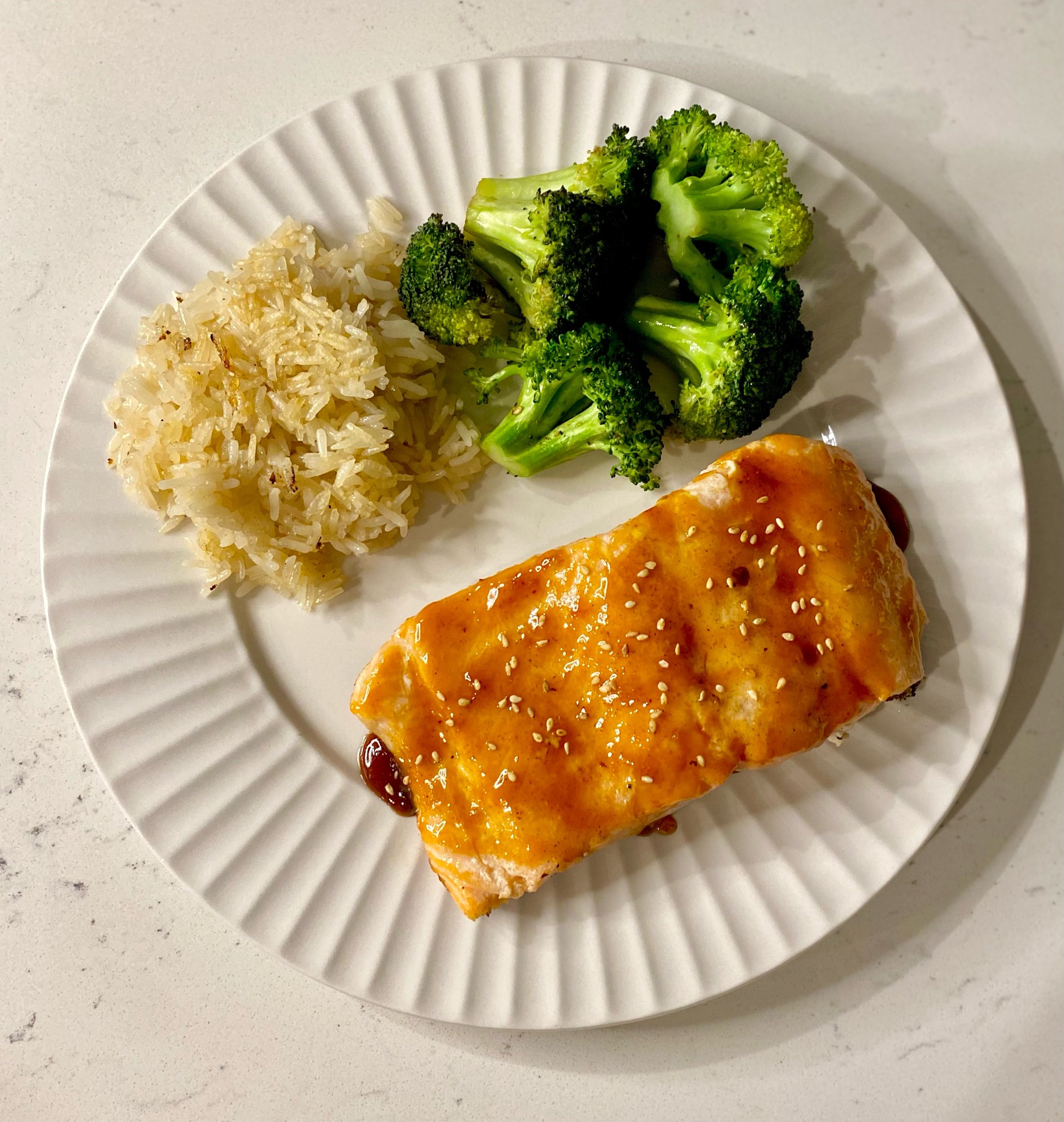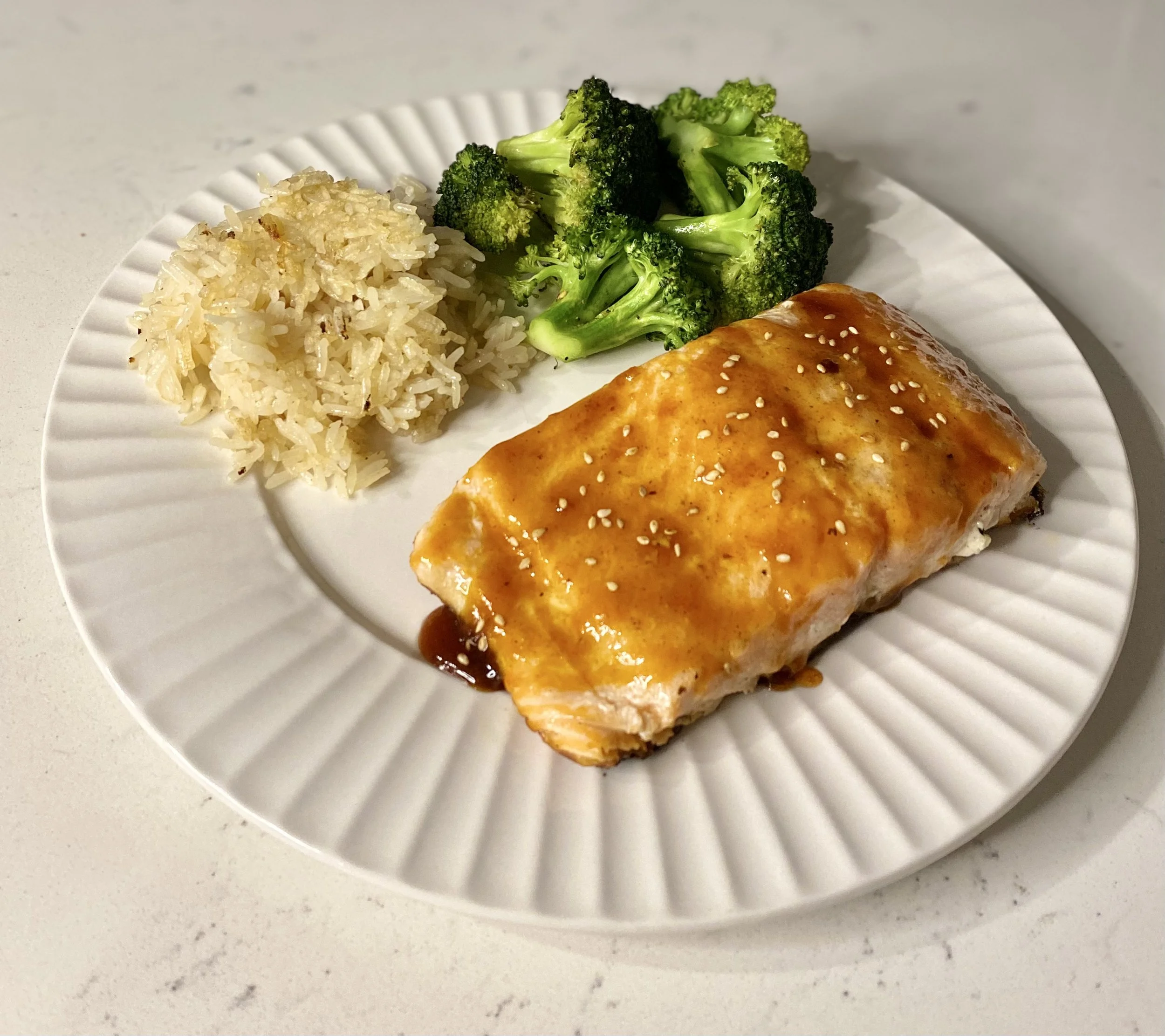15 Minute Hot Honey Salmon
When I say 15 minutes, I actually mean 15 minutes... Not the fake "15 minutes" that bloggers say, which actually means 45 minutes. They sit on a throne of lies.
15 Minute Hot Honey Salmon
Serves: 4
Active Time: 5 minutes
Cook Time: 10 minutes
Total Time: 15 minutes
INGREDIENTS:
- 1 lb salmon with skin on
- 2 tbsp. olive oil
- Salt and pepper to taste
- 3 tbsp. honey
- 3 tbsp. rice wine vinegar
- 1 tbsp. siracha
- 1 tsp. soy sauce
DIRECTIONS:
- Season the salmon fillet with salt and pepper.
- In a separate bowl, whisk together the honey, rice wine vinegar, siracha, and soy sauce.
- Heat skillet to medium high heat and add olive oil.
- Once olive oil is shimmering, place the salmon on the skillet skin side down for between 5 and 8 minutes, depending on how you like the salmon cooked. Flip the salmon and cook for 2-3 minutes on the other side. Remove salmon and set aside.
- Reduce the heat of the burner to medium and add the sauce mixture to the skillet. Let that reduce and thicken until it is the consistency of syrup, then remove from the heat.
- Top the salmon fillet with the sauce and serve that baby up. Garnish as desired with sesame seed, chopped cilantro or lime zest.
Off Dry Riesling
MY RECOMMENDATION:
Emma Reichart Dry Reisling- get it at Trader Joes
WHY IT WORKS:
- Riesling is a natural pair for spicy foods.
- The slight sweetness from the wine cools down the heat of the sauce, which makes you keep coming back for another bite of salmon.
- This is an off dry Riesling, so the acid of the wine also helps to cut through some of the fattiness of the salmon. (Don’t worry- we’re talking healthy fat here. You’re still out here living your best life, eating healthy and all that jazz.)
- Riesling almost always pairs well with Asian or Indian inspired cuisine because these are typically rich in spice.
- The spicier the food, the sweeter Riesling I would recommend.
- If you usually like sweeter wines, try to look for a late harvest Riesling instead of an off dry variety. This will have a higher residual sugar content (aka the amount of sugar left in the wine that was not converted to alcohol.)


